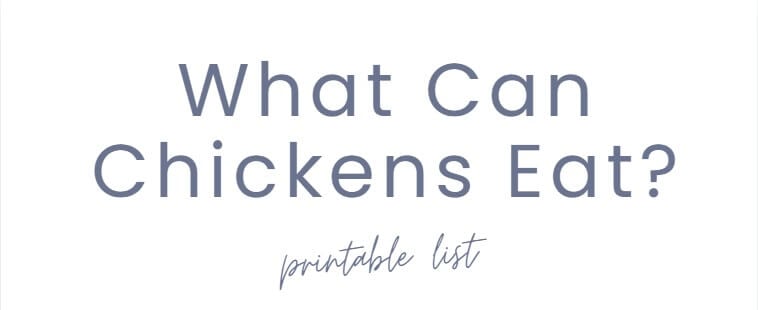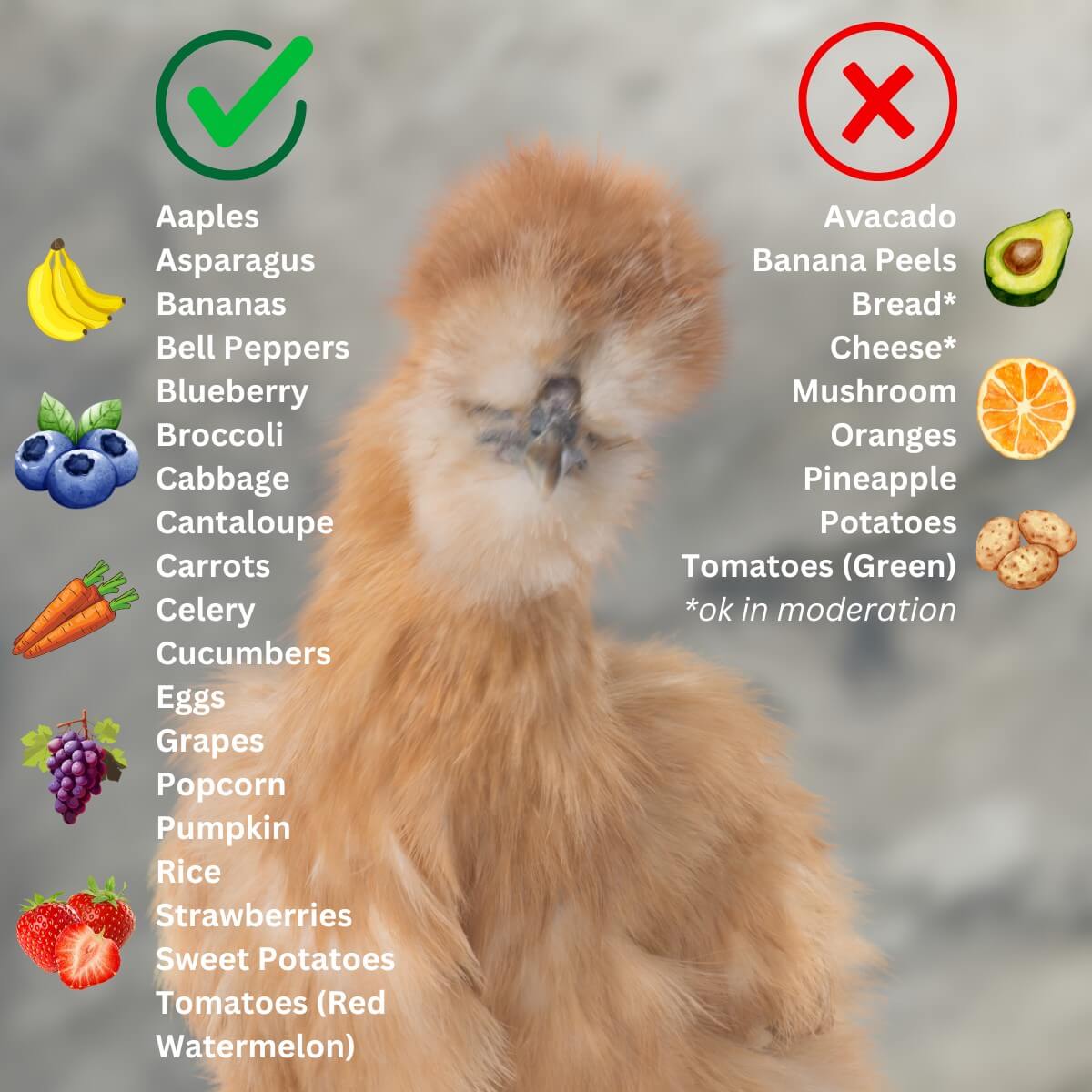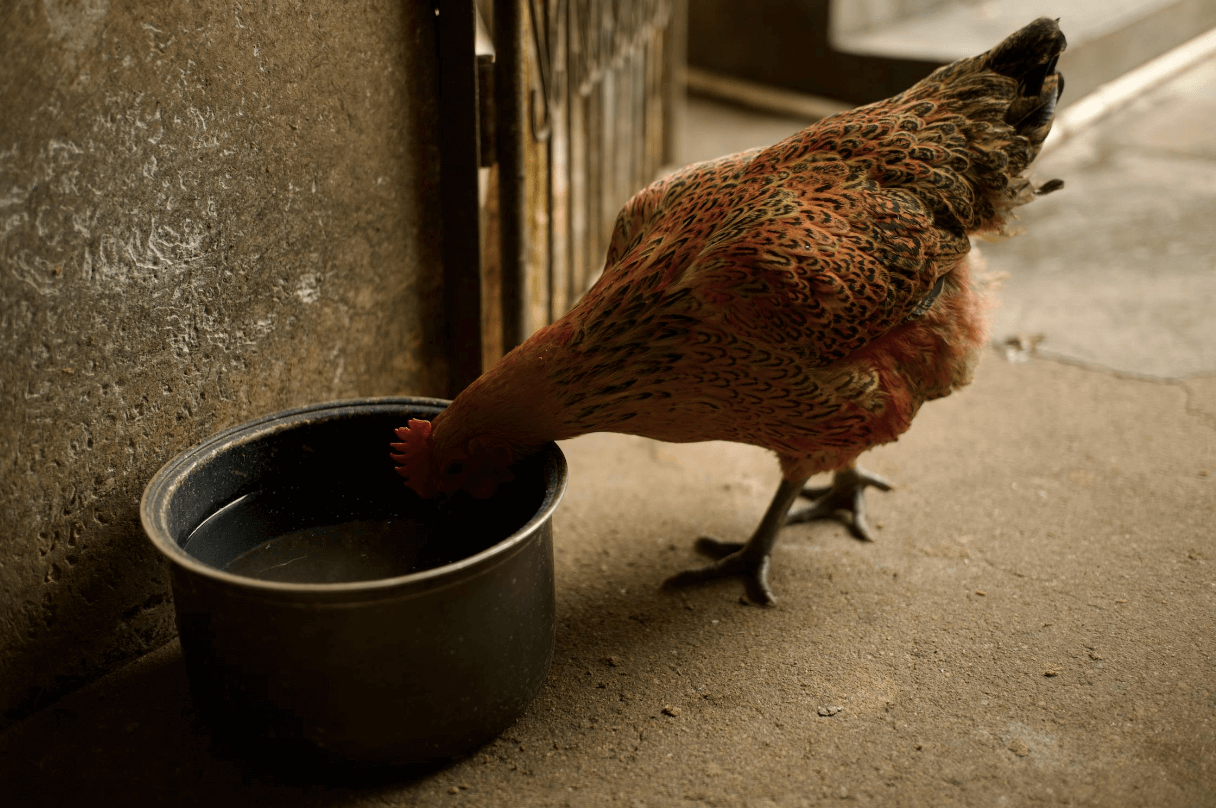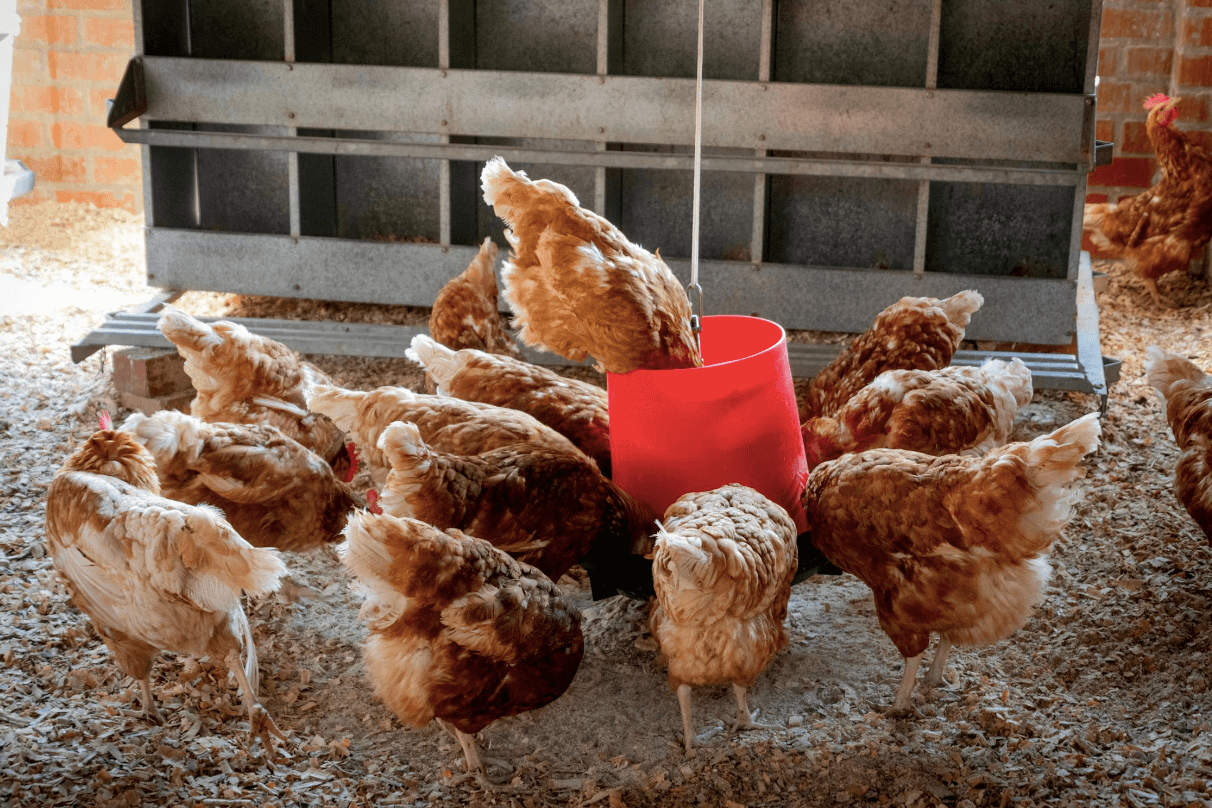Are you asking yourself: "Can Chickens and Hens Eat/Have Chocolate?" or "Is chocolate safe or bad/toxic to chickens?" Don’t feed chocolate to your chickens—fair and square. What is a guilty pleasure for humans, is a most definite no-no for egg-laying domestic birds. It's unsafe to eat for your flock as it can cause a host of health problems from increased heart rate to diarrhea, seizures, and even death.
That being said, most chicken keepers use kitchen scraps as a staple when nourishing their feathered friends. They want to cut down on their chicken feed bill and that’s fine. But you shouldn’t go quite too wild throwing in anything and everything you can possibly find.
Some foods can harm your chickens and you should know what those are. Ready to learn what NOT to feed your chickens with? Let’s dive right in, below is your free hands-on guide to feeding your chickens safely.
But wait, what was that chocolate banning all for? Let’s find that out first.
Why Is Chocolate Bad and Toxic for Chickens?
So, why deny your chickens chocolate? Can’t you at least give them an odd morsel here and there? The answer is no. As little as 1.5oz (40g) of chocolate is sure to poison your bird. Ingesting chocolate can stop a chicken’s heart within not more than 24 hours.
Chocolate contains caffeine and theobromine which are both unsafe to use in birds. These chemicals are brain stimulants that work by speeding up the brain-to-body pathway—and this is fine for humans—in moderation. The thing with birds is that they have tiny brains and bodies so ingesting any amount of these brain stimulants could overstimulate and harm them.
The other thing is that the sugar adds on. Feeding your chickens chocolate can make them obese. This is certainly unhealthy for them but doing so will also pad your slaughter weight and get your chicken produce to change flavor, affecting your reputation and sales.
What Other Foods Should You Not Feed Your Chickens?
Now that we’ve tackled the chocolate dilemma, it would be useful to know what other foods you should not feed to your chickens.
That’s how you can have peace of mind knowing that what you’re giving them is only food that’s in your chickens’ best interest.
Can Chickens Eat Citrus Fruits
Citrus fruits don’t agree with chickens so if you were planning on throwing some into the feed bucket, you shouldn't do that, seriously. The good news is that even if this escapes you and you end up feeding your fowl with anything citrus-like, odds are they'll turn away from it on their own.
This goes for oranges, lemons, limes, grapefruits, or any other citrus fruit for that matter.
But what’s the catch with citrus fruits and why can't chickens eat them?These fruits are rife with citric acid that can potentially irritate your chickens' digestive tract. And that’s not all—feeding citrus fruit peelings to your chickens can also impact egg production and result in soft shells.
Can Chickens Eat Fruit Pits and Seeds
Furthermore, be careful not to feed your chickens with fruit pits and seeds. These are not recommended as chicken feed as they contain small amounts of amygdalin.
When decomposed in your chickens’ digestive tract, amygdalin releases cyanide—a substance dangerous for birds when taken in large amounts. More precisely, cyanide is cardiac-toxic and can bring about fatal outcomes for your flock.
That said, you don’t have to worry about feeding your chickens with fruits like apples and pears (which have seeds) and cherries, peaches, and plums (which have pits). Just remember to remove seeds and pits before treating your birds with them.
Can Chickens Eat Onions and Garlic
Next on, never put garlic and onions into your scrap pan. They contain certain compounds that can irritate your chickens’ digestive tract, starting from the mouth and esophagus to your chickens’ crop, causing ulcers.
Another compound in garlic and onions that is toxic to your chickens is n-propyl disulfide. This compound can damage red blood cells and cause Heinz body anemia in your feathery friends.
For similar reasons, avoid feeding your chickens with other plants of the Allium plant family including shallots and leeks—dehydrated or powdered, cooked or raw.
Can Chickens Eat Avocados
Feeding avocados to your chicken is a huge mistake. This fruit is toxic to birds and even when taken in small amounts it can lead to death in as little as 12-24 hours.
The symptoms can show up as quickly as 15 to 30 minutes after ingesting avocado and these include anything from weakness and reluctance to perch to ruffled feathers and difficulty breathing. When you see the respiratory symptoms starting to develop, you’ll know that death will usually ensue quickly.
This is due to a fat-soluble compound called persin which is present in avocados. That said, though avocados are harmless to humans, even so, count them out when catering to your chickens’ nutritional needs.
Can Chickens Eat Rhubarb Leaves
(Image Source: Unsplash)
Rhubarb is notorious among seasoned poultrymen as one of the most deadly plants to give to your domestic fowl, so make sure not to keep it anywhere near your chicken scrap pile.
Rhubarb leaves have high contents of oxalic acid which chickens don’t tolerate well. Namely, when bound with calcium in the blood, this acid forms insoluble calcium oxalate crystals that may deposit in the kidneys and lead to serious complications such as kidney failure and death.
Can Chickens Eat Green Potatoes, Raw Potatoes, and Potato Peels
Further on, be cautious not to include raw potatoes and potato peels in your chickens’ diet. They are harmful to your precious fowl as they contain toxic glycoalkaloid compounds like chaconine and solanine. This includes white potatoes, yellow potatoes, gold potatoes and so on and so forth.
At high levels, these compounds can lead to stomach upset in your chickens, cause vomiting and diarrhea, and even inflammatory bowel disease.
With that in mind, make sure that any potato given to your poultry is precooked as cooking potatoes over 340 °F partly destroys these toxins. Also, be careful to deny your chickens access to any compost piles that may contain potato peelings and sprouts.
Can Chickens Eat Undercooked and Dried Beans
Beans, in dry and raw forms, are detrimental to your chickens’ health. Only well-cooked beans are safe to give to your feathered farm animals. The problem with raw form (and this goes for kidney beans in particular) is that it is rife with phytohemagglutinin, a type of lectin (sugar-based protein) that is toxic to birds.
Can Chickens Eat Peppers, Eggplants or Tomatoes
Chickens should not eat peppers, eggplants, or tomatoes because they belong to the nightshade family. The toxin solanine affects a chicken’s GI tract and nervous system and can cause respiratory problems, loss of motor function, and death. We love chickens and want to avoid death at all costs!
Can Chickens Eat Raw Meat
Meat is okay to occasionally give as food to your farm’s most avid eaters, as long as you cook it and don’t overdo it. Raw meat, however, should be avoided, as it can increase the risk of your chickens contracting salmonella and other harmful bacteria.
Can Chickens Eat Raw Eggs
Giving your chickens raw eggs for nourishment is not a good idea. Suffice it to say it may encourage egg-eating in your flock and you wouldn't want that, right?
Can Chickens Eat Mushrooms
The good news is that store-bought mushrooms that are generally safe for humans are also safe for Chickens. It's not a good idea to feed chickens mushrooms as they may develop a habit of eating mushrooms of any kind. If they roam freely there may be wild mushrooms growing that would be toxic to them up to and including death.
Can Chickens Eat Spinach, Asparagus or Iceberg Lettuce
Spinach can be very nutritious, but it contains oxalic acid, which interferes with calcium absorption. Because of this, it should only be given to your chickens occasionally.
Asparagus can taint the taste of your eggs so we don't recommend you feeding asparagus to your chickens. It's kind of like how it makes some people's pee stink. If you know, you know, and it's just not a good idea.
Iceberg Lettuce is mostly water and has very little nutritional value. It can cause diarrhea in large amounts so we don't recommend feeding it to chickens.
Can Chickens Eat High Salt-Content Foods
Just as with humans, salt should be given to your chickens only in moderation—consumed this way, salt has a favorable effect on your chicken’s growth and development.
That said, ensure you stay on the safe side when it comes to the salt content of your chicken feed. Going overboard with salt can cause deformities in your chickens’ eggshells over time.
Symptoms of Food Toxicity in Chickens
If your chickens eat something toxic the good news is it might not result in immediate death. Toxins can accumulate in the body of a chicken and the signs of distress may take time to show up. Symptoms can include:
- Weakness
- Loss of Appetite
- Convulsions
- Diarrhea
- Kidney Failure
- Convulsions
- Loss of Motor Control
- Paralysis
- Loss of Egg Production
- Poor Egg Quality
- Isolation From the Flock
- Internal Congestion
- Rapid Heartbeat
If one of your chickens displays these symptoms, it's a great idea to take them to a veterinarian or contact an animal poison control center quickly.
What Can My Chickens Eat Printable List
Click here for a printable list of what chickens can and can't eat. It covers all the food scraps that are fine for chickens to eat, plus those to avoid.
Feeding Your Chickens Grand Style? Gotta Give That a Try!
Washing your hands after handling your chickens is a must to prevent cross-species contamination, but you want top hygiene all through your chicken-rearing cycle—from taking dry leftovers (in Chicken Coop Company tote bags), to collecting eggs (Chicken Coop Company’s egg aprons, people!).
Since you already do the whole business of feeding your chickens, you might as well do it grand style.
And there’s this other thing. Whatever it is that you feed your chickens with, it will eventually go down the other end sometime. Chicken coop poop trays from Chicken Coop Company are designed to simplify poop-cleaning chores for you. All you need to do is place the chicken poop boards strategically under your chickens' roosting areas. When your chickens are done doing their business, you remove the chicken coop droppings trays, wash them, and replace them. It can’t get easier than that!
The Bottom Line
So, there you go. Those were some ideas of what goes against the general recommendation regarding what should go into your chicken feed. Knowing this will allow you to feed your chickens only food that you're sure is going to sustain and nourish them and not bring them harm.
Providing high-quality on-demand chicken coops is at the heart of what we do. But we also stock chicken-rearing accessories to support you in your day-to-day chicken-rearing life.
Check out our online store if you’re interested in more. And if you love your chickens (we know you do) read more Chicken Coop Company articles to help keep them happy and healthy in the long run.






